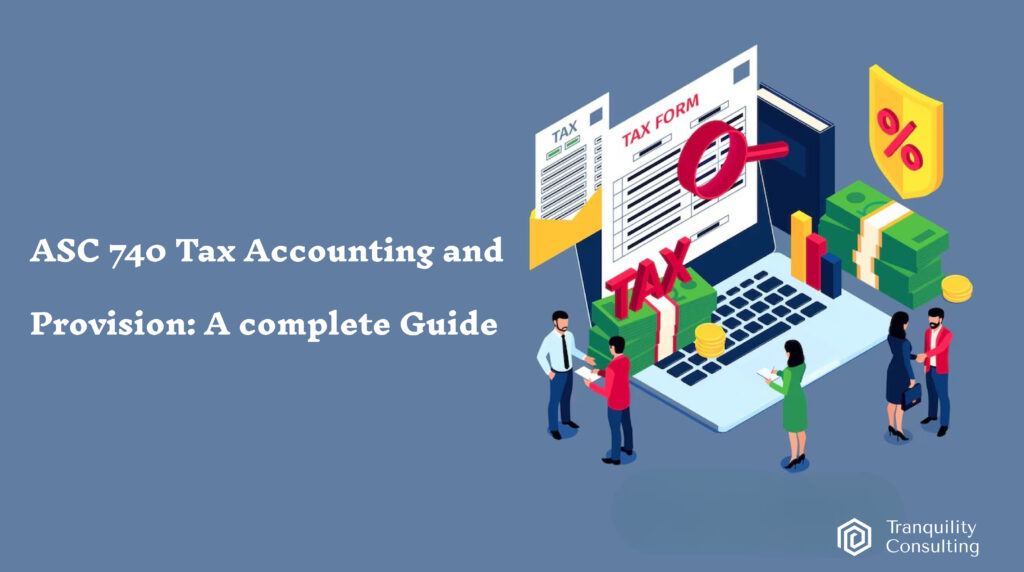Form 5472: Information Return of Foreign-Owned U.S. Corp

In today’s global economy, foreign-owned companies, including those operating in the United States, play a significant role in shaping the economic landscape. However, foreign-owned does not exempt businesses from adhering to the information reporting requirements the Internal Revenue Service (IRS) set forth. These regulations ensure that foreign entities conducting business in the U.S. comply with […]
Form 5471: Information Returns of U.S. Persons With Respect to Certain Foreign Corp

Understanding and complying with the IRS’s international tax reporting obligations is crucial for U.S. taxpayers with ownership or directorship in foreign corporations. Form 5471, also known as the Information Return of U.S. Persons With Respect to Certain Foreign Corporations, is a key document that helps the IRS monitor U.S. involvement in foreign businesses. Filing this […]
ASC 740 Tax Accounting and Provision: A Complete Guide

What is ASC 740 Tax Accounting? ASC 740 Tax Accounting refers to the Accounting Standards Codification (ASC) section that outlines how companies should account for income taxes under Generally Accepted Accounting Principles (GAAP) in the United States. It provides guidelines on recognizing, measuring, and disclosing deferred tax assets and liabilities in financial statements. The objective […]
BE Surveys: Understanding Their Impact and Importance

The Bureau of Economic Analysis (BEA) Surveys, often referred to as BE Surveys, are crucial tools in understanding the economic landscape of the United States. The BEA conducts these surveys to collect and analyze data that informs policymakers, economists, and businesses about the state of the economy. This blog will discuss BE Surveys, their significance, […]
Section 174 Rule: Guide to R&Expenditures

The Section 174 Rule under U.S. tax law significantly impacts businesses, particularly those engaged in research and development (R&D). The rule mandates the capitalization and amortization of research and experimental (R&E) expenses over a specific period. This change, enacted as part of the Tax Cuts and Jobs Act (TCJA), has reshaped how companies approach tax […]
How to Set up a Company in the US as a Non-Resident

Setting up a non-resident company in the United States can be an attractive prospect for entrepreneurs due to its vast market, robust legal system, and business-friendly policies. While the process might initially seem complex, understanding the key steps, compliance requirements, and transfer pricing regulations can make it manageable. This guide outlines everything you need to […]
Understanding SAFE Investments: Future of Startup Financing

In the dynamic world of Startup financing, new instruments are continually emerging to meet the needs of entrepreneurs and investors. One such tool is the SAFE investments (Simple Agreement for Future Equity), which has gained popularity due to its simplicity and flexibility. SAFE notes provide a streamlined way for early-stage companies to raise capital without […]
Global Accounting and Local Taxes

In an era of globalization, companies are increasingly expanding their operations across multiple countries. While global expansion allows businesses to tap into new markets, it also brings the challenge of managing finances across various jurisdictions. When combined effectively, global accounting and local taxes are critical components that streamline business operations and ensure compliance with local […]
Understanding IRS Forms W-9, W-8 BEN, and W-8 BEN-E

In the landscape of U.S. tax regulations, accurate reporting and proper documentation are crucial for both U.S. and foreign entities. Among these forms, the W-9, W-8 BEN, and W-8 BEN-E serve distinct purposes and are essential for compliance with IRS regulations. U.S. individuals and entities use the W-9 form to provide taxpayer identification information to […]
Foreign Account Tax Compliance Act (FATCA)

The Foreign Account Tax Compliance Act (FATCA) is a crucial federal law designed to combat tax evasion by U.S. taxpayers holding financial assets outside the United States. Enacted as part of the HIRE Act of 2010, FATCA mandates foreign financial institutions (FFIs) to report the financial accounts of U.S. citizens to the Internal Revenue Service […]

